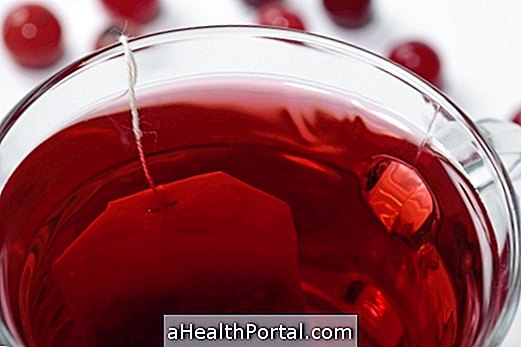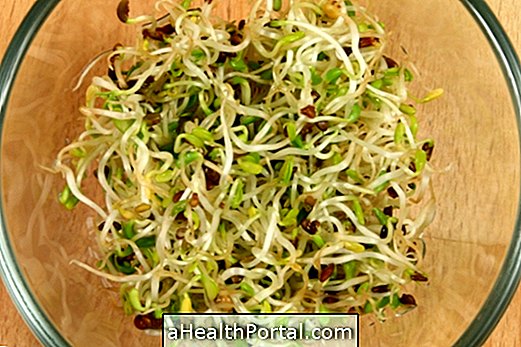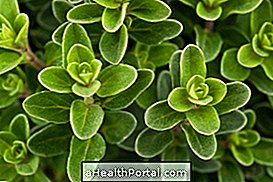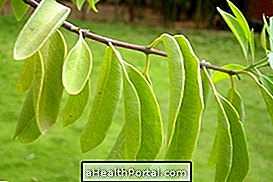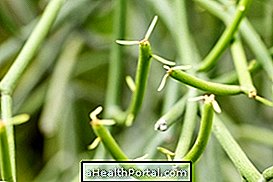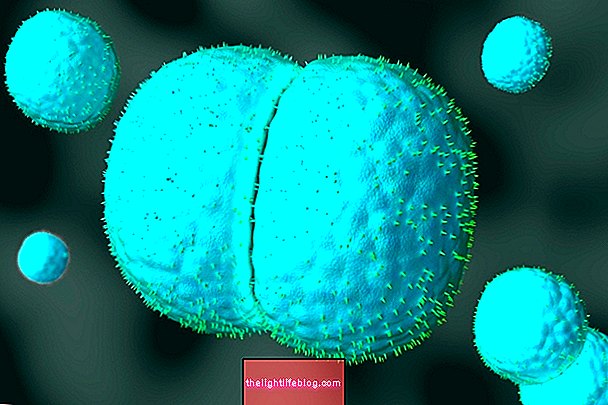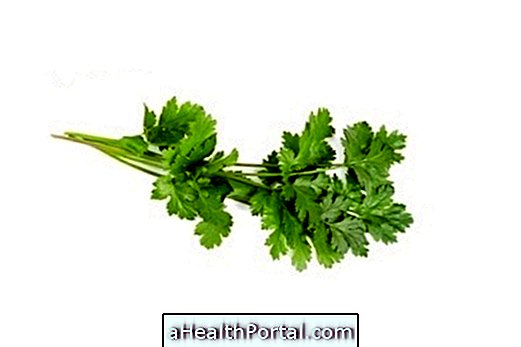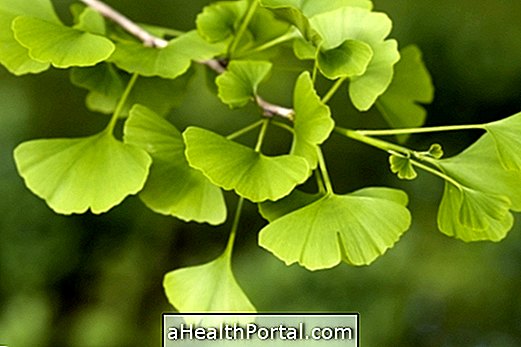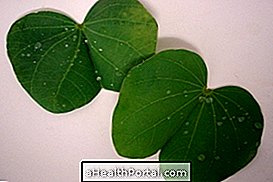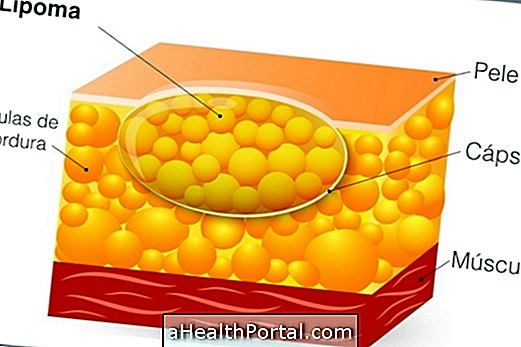Passion fruit has benefits that help treat various diseases, such as anxiety, depression or hyperactivity, and in the treatment of sleep problems, nervousness, restlessness, high blood pressure or restlessness, for example. This can be used in the formulation of home remedies, teas or tinctures, and the leaves, flowers or passion fruit can be used.
In addition, it can also be used for weight loss and the fight against aging, as it is packed with antioxidants like vitamins A and C, and has diuretic properties.
Passion fruit is the fruit of the medicinal plant scientifically known as Passiflora, a vine that is popularly known as passion flower.
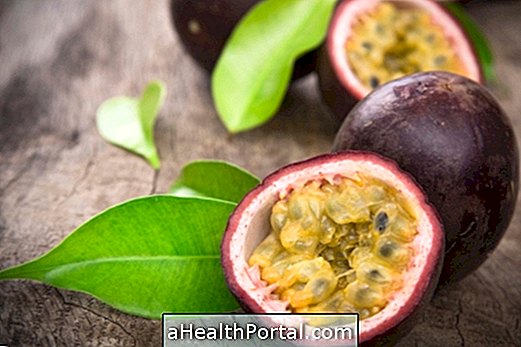
What is passion fruit for?
Passion fruit can be used as a natural remedy to help treat various problems such as:
- Anxiety and depression: Helps reduce anxiety and restlessness, helping to soothe and relax; Here's how to make passion fruit juice to soothe in: passion fruit juice to calm;
- Insomnia: has an effect on the body that induces drowsiness and has relaxing and calming properties that help you to fall asleep; Here's how to prepare passion fruit juice to sleep better on: passion fruit juice to avoid insomnia;
- Nervousness, agitation, restlessness and hyperactivity in children: it has a sedative and calming action, which helps to relax and calm;
- Parkinson's disease: helps reduce tremors associated with the disease because it has properties that soothe the body;
- Menstrual pain: helps relieve pain and decreases contractions in the uterus;
- Headache caused by muscle stiffness, nervous tension and muscle pain: it helps to relieve pain and relax the body and muscles;
- High blood pressure caused by stress: help lower blood pressure. Here's how to make passion fruit juice to regulate blood pressure in: Passion fruit juice for high blood pressure;
Properties of passion fruit
The passion fruit presents sedative and soothing action, analgesic, refreshing, it reduces blood pressure, tonic to the heart, relaxing to the blood vessels, it reduces spasms, antioxidant and diuretic properties.
Mode of use of passion fruit
Passion fruit can be used in the form of tea or infusion using dried, fresh or crushed leaves, flowers or fruit of the plant, or it can be used in the form of tincture, extract fluid or in capsules. In addition, the fruit of the plant can be used to make natural juices, jams or sweets.
Passion fruit tea
Passion tea or infusion is one of the options that can be prepared with dry, fresh or crushed leaves of the plant, and can be used for the treatment of insomnia, menstrual pains, tension headaches or to treat hyperactivity in children .
- Ingredients: 1 teaspoon dried or crushed passion fruit or 2 teaspoons fresh leaves;
- How to prepare: in a cup of tea put the dried, crushed or fresh leaves of the passion fruit and add 175 ml of boiling water. Cover, let sit for 10 minutes and strain before drinking.
For insomnia treatment this tea should be drunk 1 time a day at night, and to relieve headaches and menstruation should be drunk 3 times a day. For the treatment of hyperactivity in children the doses should be reduced and indicated by the pediatrician.

Passion fruit tincture
Passion fruit tincture can be purchased from drugstores, markets or natural product stores, and can be used to treat nervous tension, high blood pressure, and reduce the severity of Ménière's syndrome. This dye should be taken 3 times a day, and it is recommended to take 2 to 4 ml of tincture, the equivalent of 40 - 80 drops, according to medical or phytotherapist guidance.
Passion Fruit Extract
The fluid extract of passion fruit can be bought at the market, manipulation pharmacies or natural products stores, for the relief of toothache and to treat herpes. This extract should be taken 3 times a day, along with a little water, being recommended to take 2 ml, equivalent to 40 drops, according to medical guidance or a herbalist.
Passion Fruit Capsules
Passion fruit capsules can be purchased at pharmacies, drugstores or natural food stores for the relief of anxiety, tension and headaches, and it is recommended to take 1 to 2 200 mg capsules morning and evening as directed doctor or phytotherapist.
Side Effects of Passion Fruit
The most common side effect of passion fruit is drowsiness, especially if the passion fruit is ingested in excess.
Contraindications of passion fruit
Passion fruit is contraindicated for patients with low blood pressure.
Nutrition information of passion fruit
The Passion Fruit presents the following nutritional information:
| Components | Amount per 100 g of passion fruit | |
| Energy | 17 kcal | |
| Lipids | 0.13 g | |
| Proteins | 0.40 g | |
| Carbohydrates | 4.21 g | |
| Fibers | 1.9 g | |
| Vitamin A | 229 IU | |
| Vitamin C | 5.4 mg | |
| Betacarotene | 134 mcg | |
| Potassium | 63 mg | |
| Vitamin B2 | 0.02 mcg |
